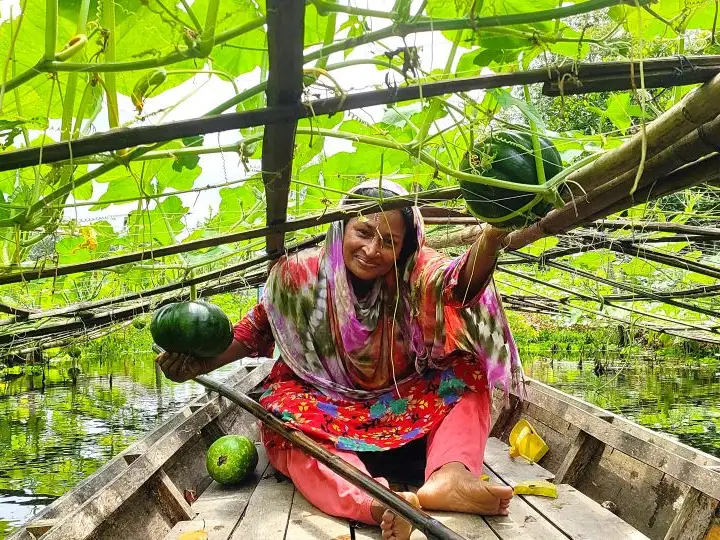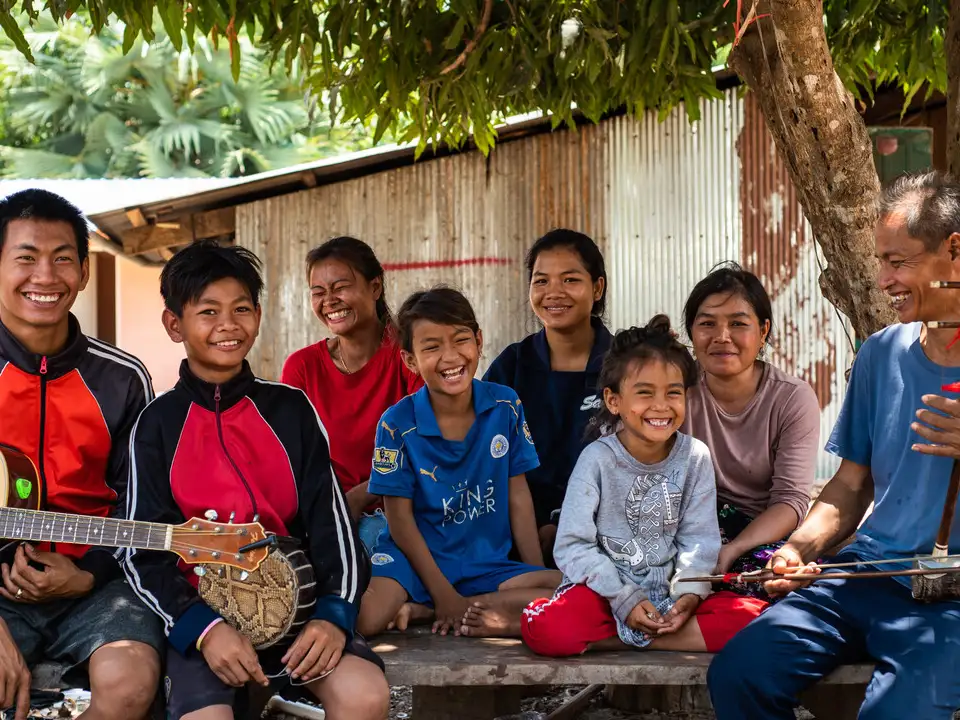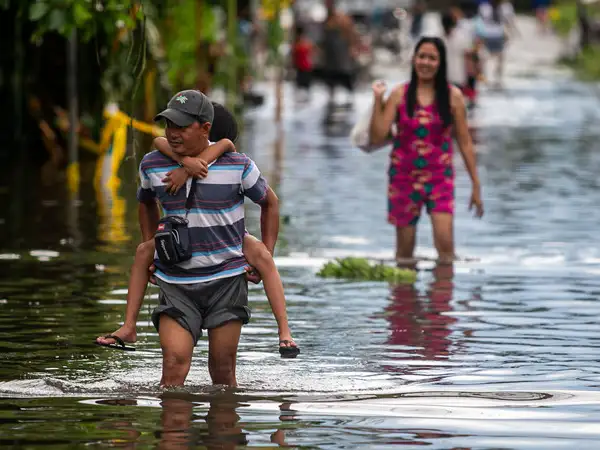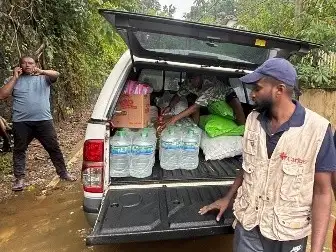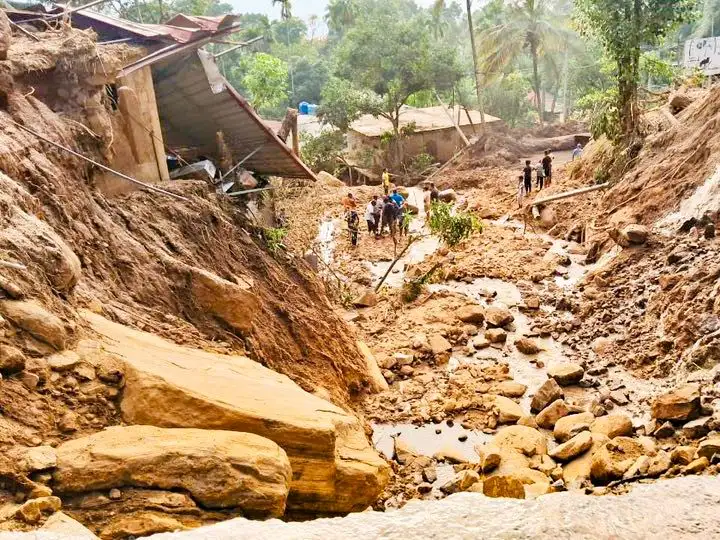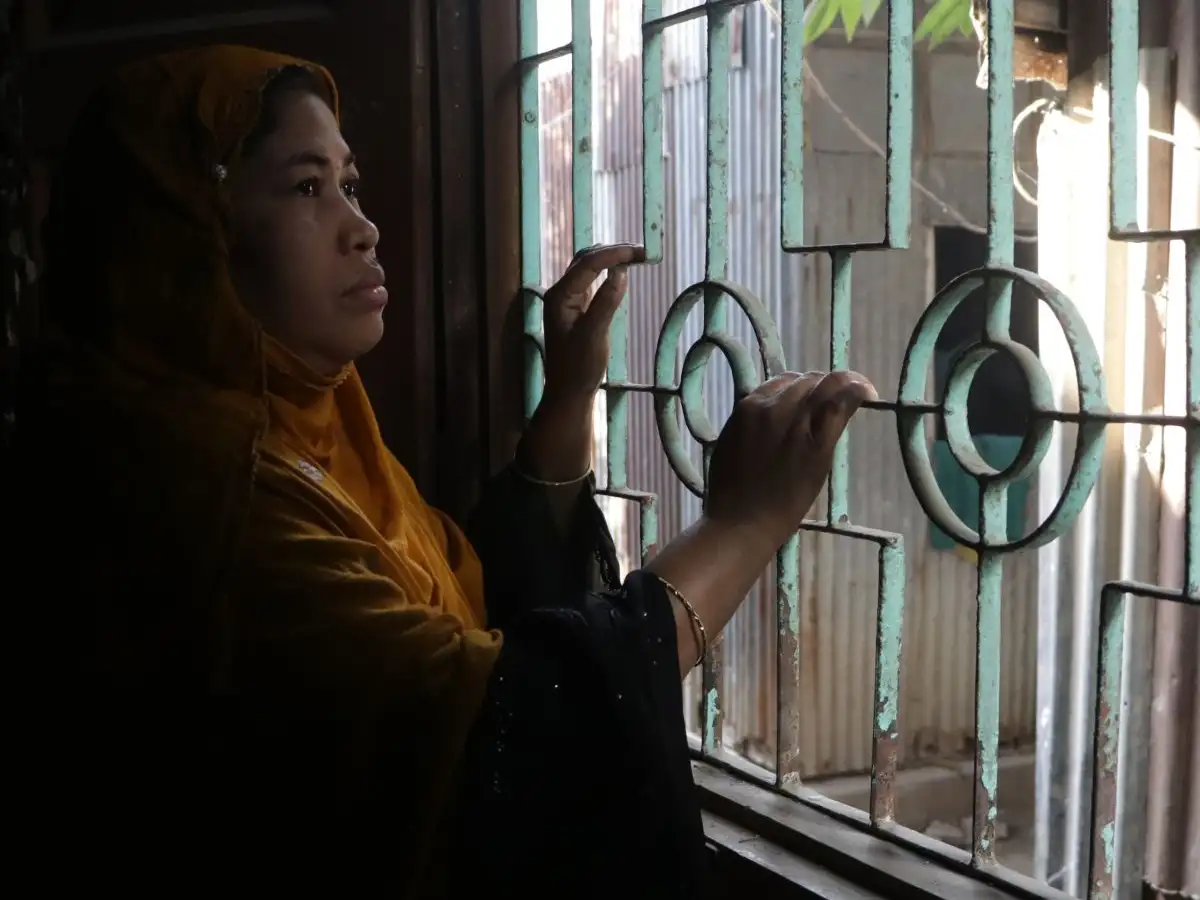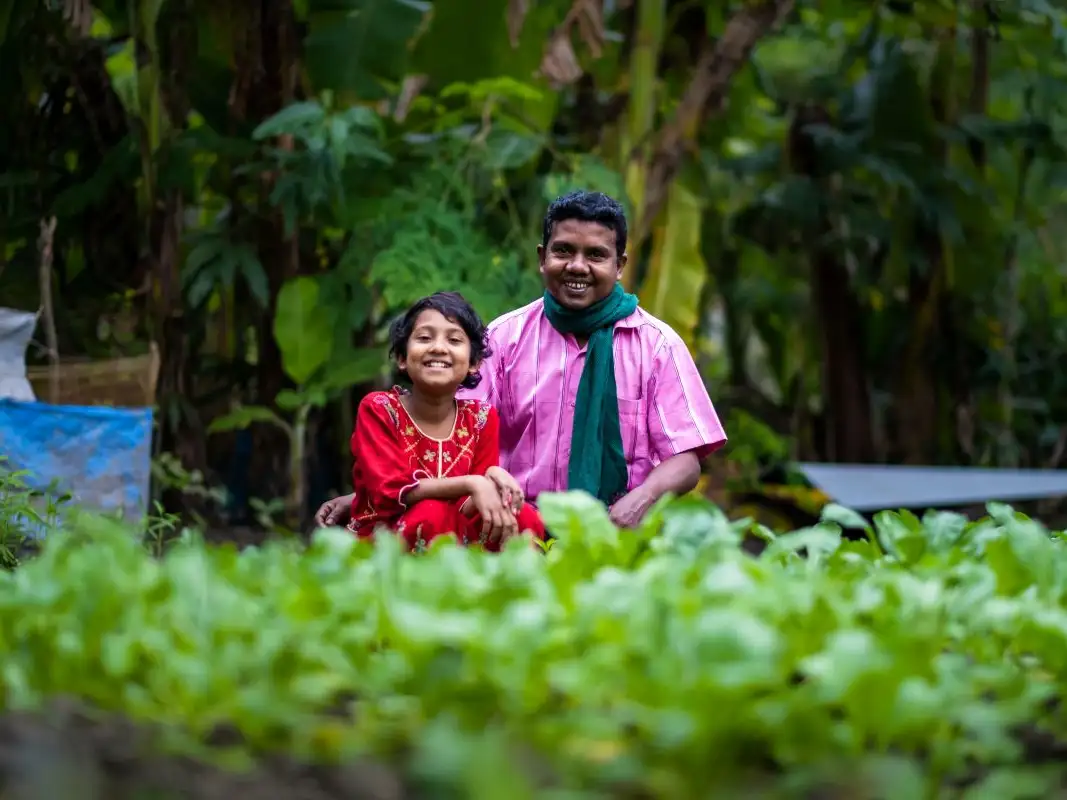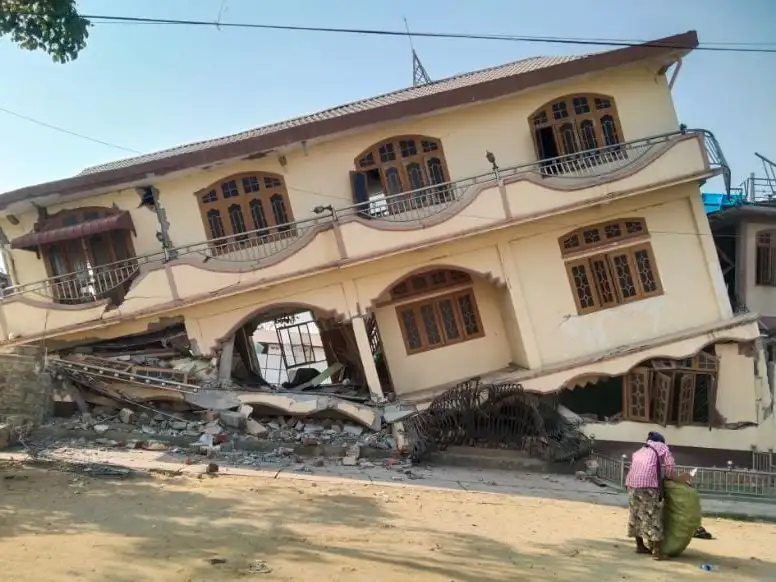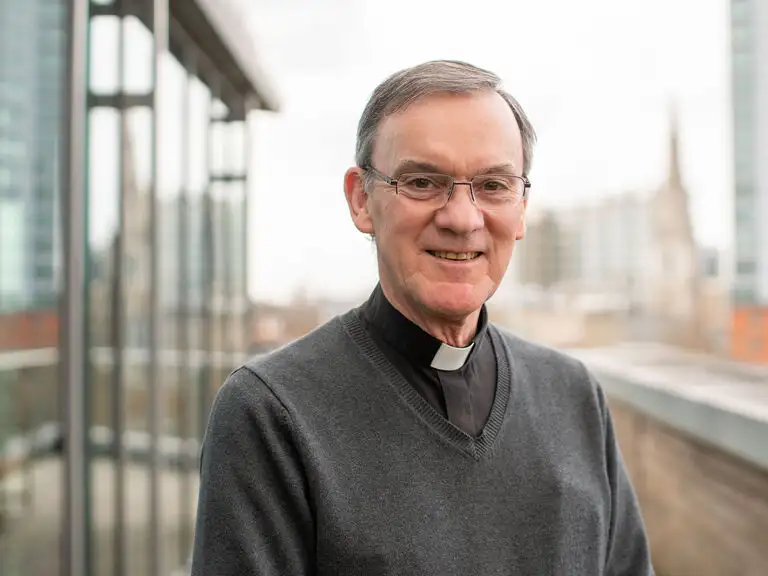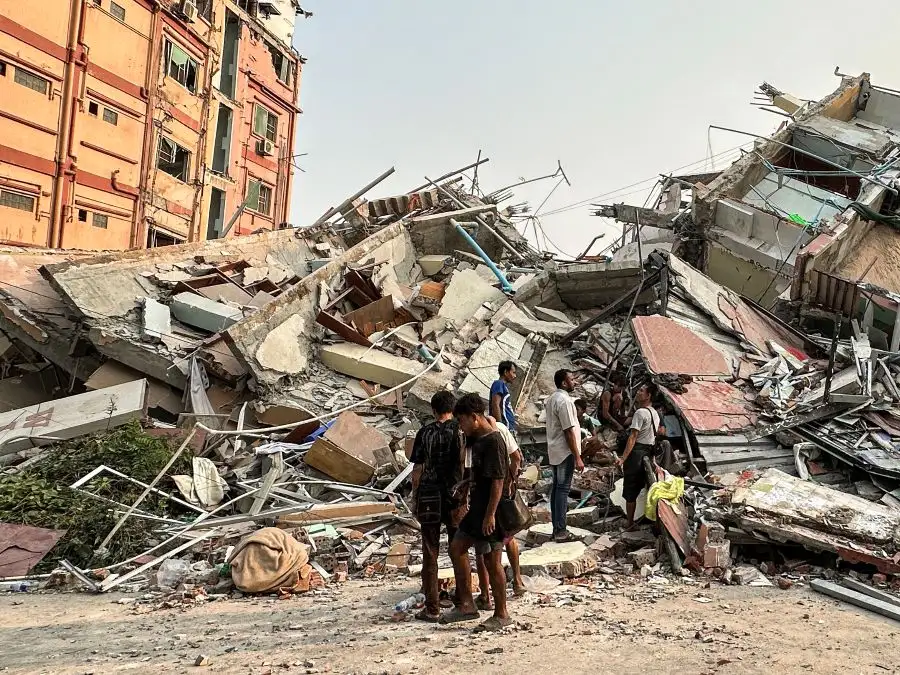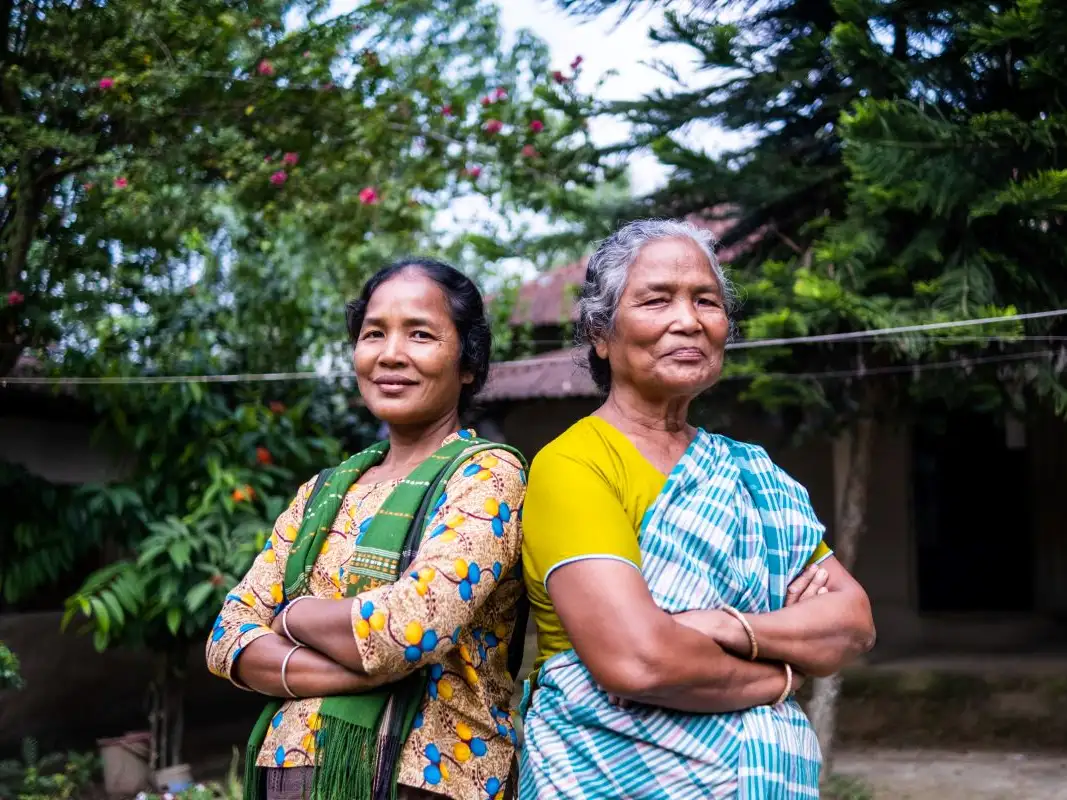

CAFOD is supporting local communities to defend their rights to their land and way of life in Bangladesh. Credit: Amit Rudro
CAFOD works in some of the most challenging places in the world. Nowhere is this truer than across Asia. Through our dedicated partner organisations in Afghanistan, Bangladesh and Sri Lanka, we’ve been standing in solidarity with communities facing poverty, conflict and instability since the 1980s, supporting people to flourish – because a better world needs all of us.
Our partners in Asia are transformational: they’re tackling the root causes of poverty and changing structures to create a more just world.
We’re inspired by Pope Francis’ encyclical, Laudato Si’. We recognise that “the cry of the poor” and “the cry of the earth” are inextricably intertwined. That’s why, throughout our work across Asia, we strive to promote social and environmental justice.
Alongside our partners, we’re responding to emergencies, upholding the rights of Asia’s poorest and most vulnerable people, and supporting them to provide for themselves and live a dignified life, so everybody has the opportunity to flourish.
Where we work in Asia
CAFOD currently works in Afghanistan, Bangladesh and Sri Lanka, as well as responding to emergencies in Myanmar. Our work in the Philippines and Cambodia has now come to an end following several decades of support to vulnerable communities.
Why CAFOD works in Asia
Millions of people in Asia are socially, politically and economically excluded because of discrimination, weak governance and widespread corruption.
While fast economic growth has helped to significantly reduce poverty in Asia, economic hardship remains a huge challenge. Income inequality across the region is vast and the impact of COVID-19 and rising costs over recent years has pushed millions more people into extreme poverty. Many poor and vulnerable families are unable to access enough nutritious food, as well as basic services like quality education, healthcare and sanitation. Social services to support vulnerable people are often weak or non-existent. Millions of people are living just above the national poverty line and are extremely vulnerable to shocks.
Violence and conflict driven by ethnic, religious, political and historical discrimination continues to plague the region, with many generations only knowing conflict and instability. These tensions often lead to an escalation in violence, further systemic discrimination and human rights abuses.
Patriarchal attitudes, laws and governance systems, gender stereotypes and power inequalities in Asia remain a significant challenge for women and girls who often are unable to access basic rights, including the same health, educational and employment opportunities and services as men. Women often have limited access to land and credit and have little control over their lives. Gender-based violence is a significant issue across the region with particularly high rates of violence in all countries where CAFOD works in Asia.
Authoritarian regimes in Asia have limited freedom of expression and freedom of the press. Intimidation, arrests, detentions and a culture of fear represent significant challenges for human rights defenders, especially women and environmental defenders.
Asia is highly vulnerable to the impacts of the climate crisis and is experiencing increasing extreme weather such as floods, droughts, cyclones and heatwaves, which threaten families’ abilities to earn a living. Due to its geographical location among major tectonic plate boundaries, earthquakes in Asia are also common and often lead to widespread humanitarian suffering. Such disasters often further exacerbate pre-existing issues of conflict, poverty and political instability.
Rapid economic growth over recent years has resulted in significant pollution, deforestation and environmental degradation which in turn has led to changing weather patterns and made poor communities ever more vulnerable to natural disasters, especially families who are dependent on agriculture.
The so-called Green Revolution in the 1960s encouraged farmers to become heavily dependent on imported fertilisers, pesticides and seeds. This has resulted in damage to the soil, deforestation and loss of biodiversity. The climate crisis is making the situation even worse.
Our impact in 2024
60 people, including small-scale farmers and partners across five countries in the Asia and Middle East region, shared knowledge on environmentally friendly and sustainable farming techniques, like organic compost production and indigenous seed conservation, as well as documenting its positive impact to better engage with policy makers on sustainable food systems.
As part of CAFOD’s Cross-regional Integral Ecology Peacebuilding project, young people across four countries, including Sri Lanka, strengthened their practical skills and knowledge on peacebuilding and environmental protection, improving their understanding of the relationship between conflict, climate, environment and peace, particularly in the context of the climate crisis.
Our priorities in Asia
We’re pushing for social inclusion for women and girls – those that face the worst forms of abuse and exploitation, and have the least voice, power or influence. Our work with local partners aims to raise women and girls’ voices, increase their skills, and unite them to strengthen their confidence and agency.
We’re promoting gender justice by supporting partner organisations who attempt to change social norms and assumptions at a local and national level, and push back against the broader oppressive laws, customs and structures of power that restrict women’s lives and choices.
We’re also working with our partners to support women and girls, as well as people living with disabilities, to access opportunities for work and education, so they can use their skills to earn a living through growing vegetables or setting up small businesses.
Alongside our partners, many of whom are leading experts on environmentally friendly and sustainable farming, we’re working with the poorest and most marginalised communities to improve their livelihoods, supporting people to flourish in their communities while regenerating the environment.
Working with farmers’ groups and local farming networks, we’re helping producers to adopt more sustainable farming practices and evidence the benefits of practices like soil conservation, using organic compost, preserving traditional seed varieties and adapting to local climate conditions. Farmers are learning more about how to increase their yields and sell surplus compost to earn additional income to support their families.
As part of CAFOD’s Food Systems Global Advocacy Programme, our partners are working alongside local communities to advocate for policies that support sustainable food production at local, national and international level. This advocacy work highlights the importance of seed sovereignty and environmentally friendly farming practices to improve people’s livelihoods and reduce hunger.
We’re working alongside citizens, faith leaders and young people across the region to promote constructive collaboration between different ethnic and religious groups, and to help to defuse potential conflicts. Together, we’re building peaceful, non-violent societies that support reconciliation and care for the environment.
Our local partners are also providing legal advice and psychosocial support for survivors of conflict and human rights abuses.
We’re supporting local communities to be better prepared for the impacts of the climate crisis and natural disasters such as floods, cyclones and earthquakes. Together, we’re building flood defences to protect homes and farms from extreme flooding. This means that families can continue to support themselves and grow food before, during and after a disaster.
We are responding to the refugee crisis in Bangladesh (where violence in Myanmar has forced more than 1 million Rohingya to flee to Bangladesh’s Cox's Bazar district) by providing essential services including shelter, water, sanitation and nutrition, as well as education for children.
Following the serious earthquake that hit Myanmar on 28 March 2025, CAFOD partners, through the Catholic Church, provided urgent relief to families including bottled water, dry food and shelter materials.
Following the earthquake that hit eastern Afghanistan on 31 August 2025, CAFOD partners quickly responded with life-saving support such as temporary shelter, food, cash assistance and hygiene kits for families severely affected by the disaster.
As well as supporting country partners, we’re working with regional organisations and networks who are advancing Church and civil society coordination, advocacy and movement building.
Caritas Asia
Caritas Asia leads and builds capacities of national Caritas across Asia to creatively address social, ecological, humanitarian and development issues.
Federation of Asian Bishops’ Conferences (FABC)
We’re promoting action on Pope Francis’ encyclical Laudato Si’ among FABC's members, with the ultimate goal of promoting sustainability and eco-friendly practices in communities across south-east Asia.
News from Asia
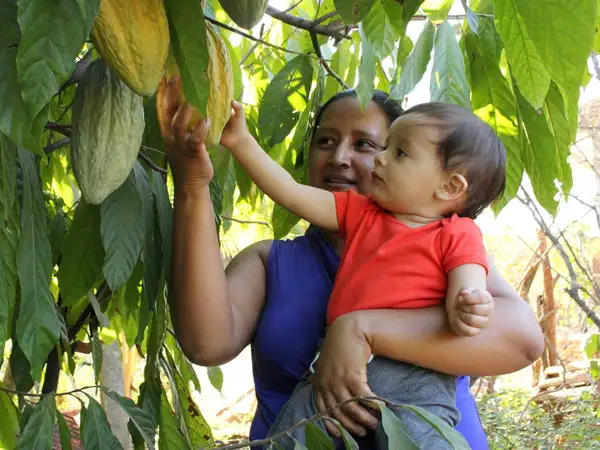
What we do
CAFOD is the official aid agency for the Catholic Church in England and Wales.
With your help, we reach out to people living in hard-to-reach places, in war zones and those who are discriminated against.



